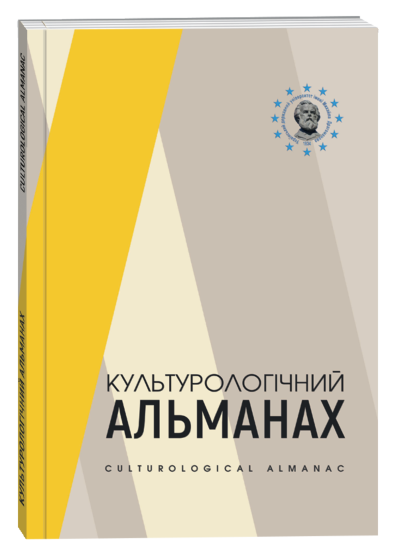PECULIARITIES OF CRITICAL THINKING IN THE ANCIENT PHILOSOPHICAL THOUGHT OF THE CLASSICAL PERIOD
DOI:
https://doi.org/10.31392/cult.alm.2023.2.25Keywords:
critical thinking, ancient philosophy, method, dialogue, thinking errors.Abstract
The article is devoted to the examination of critical thinking as a phenomenon, the main features of which, as shown in this work, developed during the classical period of ancient philosophy. The philosophical definition of critical thinking appears as a complex task. We can talk about three points of attention: the first is operational, critical thinking should be rational, logically based, and purposeful. The second is axiological; there must be a person’s readiness to critically review his deep-seated value beliefs and worldview guidelines. The third is social; the opportunity to prove one’s opinion, not always to agree with generally accepted things, to hear and understand others. In addition, we can talk about: 1) critical thinking as a dynamic procedural phenomenon, 2) critical thinking as a method, 3) critical thought as a formed and established phenomenon. These meanings, in our opinion, appeared in classical ancient philosophy. Socrates tried to draw the attention of his interlocutors to known things and fill them with new meanings that overturned traditional views. The axiological and social meaning of critical thinking was laid by Socrates. Plato continues the line of his teacher, but develops a methodological toolkit of critical thinking, shows errors that can prevent the acquisition of true knowledge: reluctance to hear another, or even fear of another’s opinion, the tendency of a person to enter such a state where emotions prevail over reason; acceptance of plausibility without any evidence; narrowing the range of confirmations and arguments for obtaining knowledge, which leads to incompleteness of evidence; dishonesty, which leads to the destruction of a person’s inner world. The operational meaning of critical thinking is developed by Aristotle. He believed that a person should not recall meanings, but learn to formulate them through experience and understand that critical thinking has its own characteristics, there are no eternal and single meanings, they can be alternative.
References
Critic. (2023). Vocabulary.com Dictionary, Vocabulary.com. URL: https://www.vocabulary.com/dictionary/critic.
Dunne, Garry. (2019). Critical Thinking: A Neo-Aristotelian Perspective. URL: http://www.tara.tcd.ie/bitstream/ handle/2262/86046/Gerry%20Dunne%20thesis%202019.pdf?sequence=3&isAllowed=y.
Elder Linda. (2019). About the Foundation for Critical Thinking. URL: https://www.criticalthinking.org/pages/ our-mission/405.
Hitchcock David. (2022). Critical Thinking. Stanford Encyclopedia of Philosophy. URL: https://plato.stanford. edu/entries/critical-thinking/.
Громова Н.М. (2014). Проблема критичного мислення у працях вітчизняних та зарубіжних дослідників. Педагогічний процес: теорія і практика. Вип. 3. С. 133–136.
Paul R. (1992). Critical thinking: What every person needs to survive in a rapidly changing world. Santa Rosa, CA : The Foundation for Critical Thinking.
Платон. (2022). Діалоги / пер. з давньогрецької. Харків : Фоліо. 349 с.
Aristotle. (2008). The Rhetoric. A translation by R. Jebb. Cambridge : the University Press. 207 p. URL: https://library.uoh.edu.iq/admin/ebooks/35321-aristotle-rhetoric.pdf.








